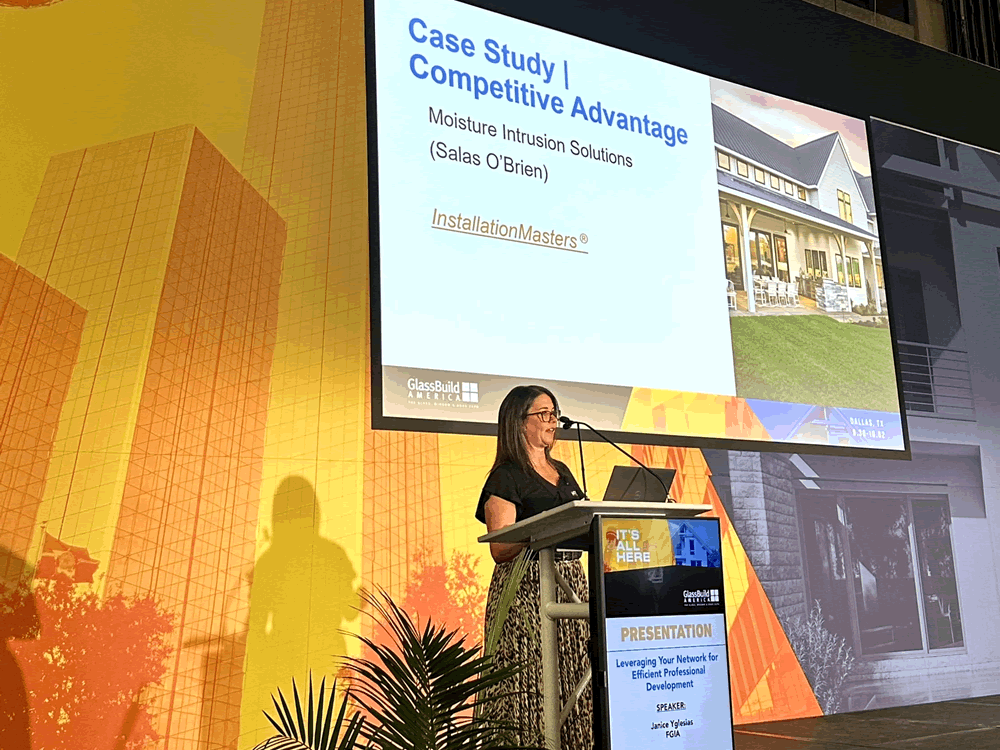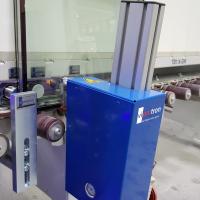
Date: 27 May 2019
Tuckahoe, New Jersey
Conspectus, Inc.
Tuckahoe, NJ | Cleveland, OH | Nashville, TN | Chicago, IL
David Stutzman, AIA, FCSI, CCS, SCIP
Owner

About Conspectus, Inc.
The nation’s largest independent specifications consulting firm, Conspectus consistently goes beyond expectations to mitigate risk and add value for construction project stakeholders.
Since 1992, the company has provided specifications and consulting emphasizing comprehensive documentation, transparency, and collaboration so that stakeholders can actively contribute to sound decision making and project success. Conspectus thinks beyond the specifier’s traditional role and adds an interdisciplinary perspective to focus on the right priorities.
For more information, visit https://conspectusinc.com.
Introduction
A standout high school drafter, David Stutzman followed the career path that seemed most logical – he became an architect. Upon graduation, he joined with a project manager to retrofit Army buildings for energy efficiency.
After measuring and documenting 65 buildings, Stutzman thought he was finished. Then his boss asked him to write the specifications. “I literally said, ‘what’s a spec?’,” he recalled.
Once he got the hang of it, Stutzman realized the value and importance of a well-written and detailed specification. Shortly thereafter, he transitioned to spec writing full-time. In the four decades since, he has served as a project architect, estimator, and consultant, always with a focus on specs.
In 1992, he founded Conspectus to serve owners, architects, design-builders, and construction managers. Driven by multi-disciplinary perspectives, Stutzman and Conspectus remain at the forefront of the industry. When the NACC program was established, they quickly became vocal advocates.
About NACC
The North American Contractor Certification Program provides architectural glass and metal contractors with certification recognition through a professionally administered, third-party assessment, as a means of creating a baseline for competency and adherence to industry-accepted guidelines.
Quality, Consistency, Competency
“NACC is a simplified way to specify a minimum quality standard and to know you’re getting an expected competency from a contractor or installer,” Stutzman explained. “Without that, you can specify by years of experience or previous projects. But how are you really measuring success, and by whose standard?”
Experienced is typically measured in terms of years. Qualified speaks more toward competence. A company might be highly qualified yet only have a few years of relevant experience. By contrast, a company might have 20 years of experience with questionable quality.
Stutzman argues that the common terminology ‘successful completion of previous projects’ doesn’t fully protect owners. “In any trade or profession, if you aren’t paying attention to quality and constantly trying to improve, just adding more years of experience doesn’t necessarily mean you are better.” He understands NACC certification as a way to ensure quality, consistency, and competency.
Trained and Approved
Stutzman sees the term “trained and approved by the manufacturer” appear regularly in specifications. The phrase is common in MasterSpec®, the industry-leading specification resource and a product of the AIA. However, most glazing product manufacturers do not approve or endorse subcontractors.
By comparison, many roofing manufacturers provide installer training, which is often required to ensure warranty compliance. Especially in the case of curtain wall glazing, there are too many parts and pieces – from glass to framing – with no one entity controlling the entire result.
With manufacturer certification not an option, Stutzman explained, “NACC is our next best hope.” As a uniform measure of industry-accepted standards, NACC certified contractors hold their work performance to a higher level. During the bid process, NACC sets them apart from merely “qualified” as an arbitrary term to “qualified” as a third-party endorsement.
Added Value
According to Stutzman, owners have been receptive to NACC, including those at the Veterans Administration and Children’s Hospital of Philadelphia. The concept of certification isn’t unfamiliar – the Architectural Woodwork Institute and Firestop Contractors International Association are two that run similar programs.
He believes specifying certification should be an owner decision, based on willingness to buy and enforce a quality level. “It’s not a decision that should be taken lightly, and it shouldn’t be entirely up to the architect,” he adds. “The architect should be in a position to bring the discussion to the owner.” For that reason, Stutzman educates his architect clients on NACC and other programs, explaining certifications as tools to improve projects. “The architect should be looking out for the best interests of the owner and this is one of the ways to do that.”
 600450
600450












Add new comment